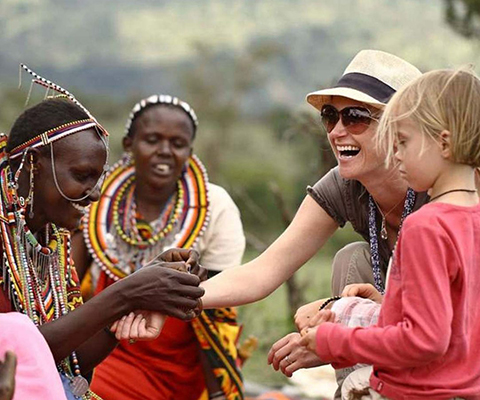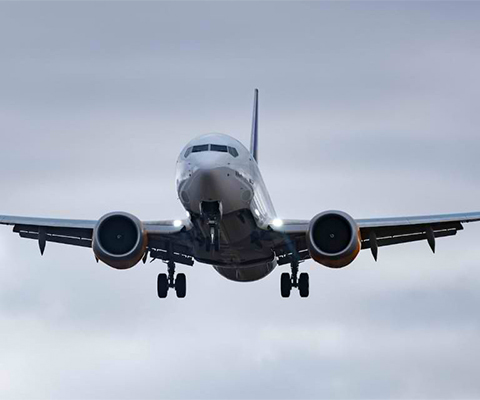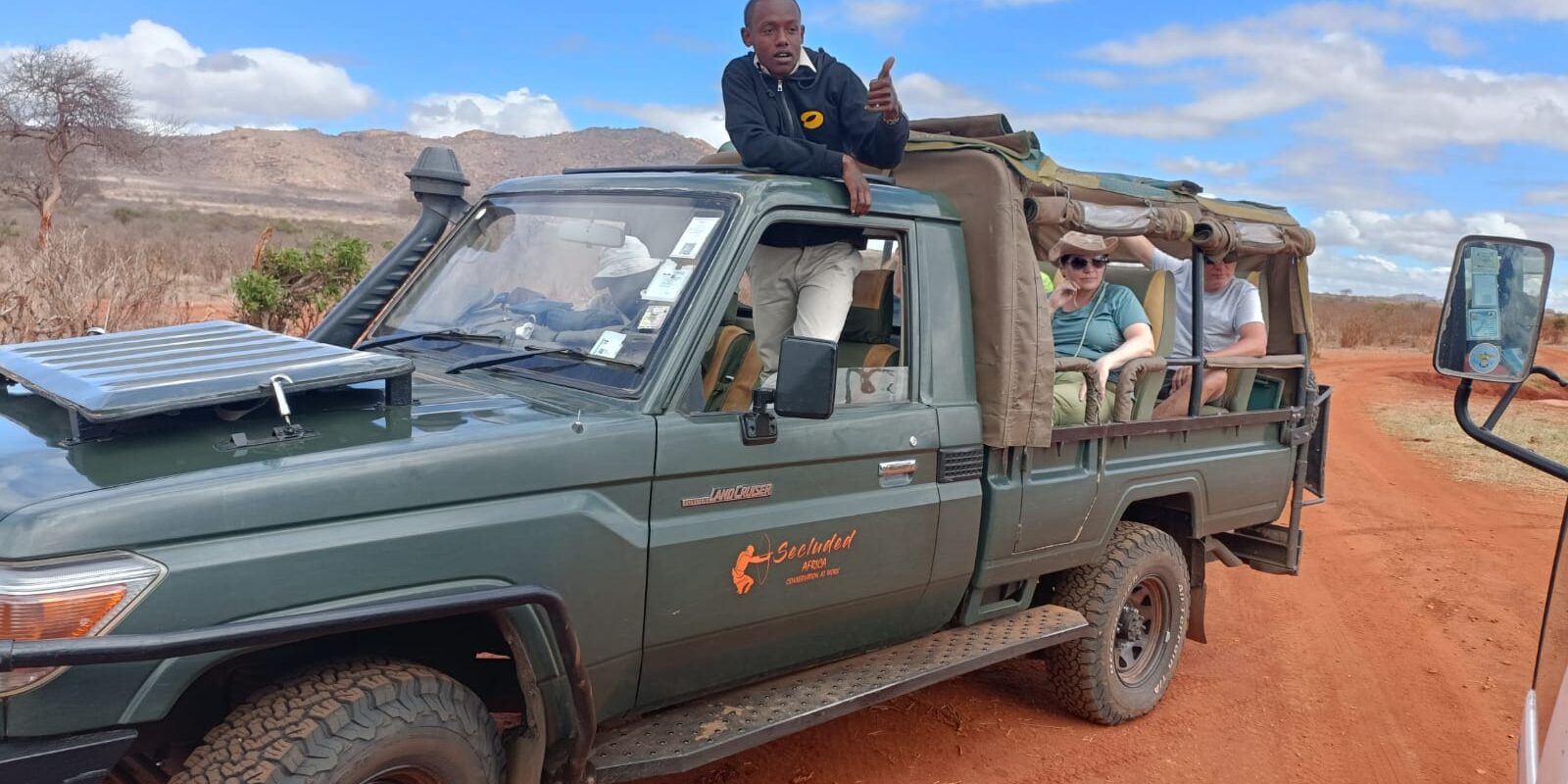Discover the wonders of Africa on an affordable African safari adventure.
Embarking on an African Safari is an experience like no other.
It is a journey that immerses you in the untamed beauty of the African wilderness, bringing you face-to-face with magnificent wildlife and breathtaking landscapes.
From the vast savannahs of the Serengeti to the lush wetlands of the Okavango Delta, Africa offers an unparalleled adventure that captivates the hearts of travelers worldwide. The allure of an African Safari lies in its ability to awaken a sense of wonder, connecting us to the raw power of nature and reminding us of our place in the natural world.
Despite the allure and undeniable charm of an African Safari, the cost is often a concern for many travelers. Safaris can be perceived as expensive ventures, discouraging some from fulfilling their dreams of exploring the African wilderness.
However, it is essential to note that affordable options do exist.
With some research and planning, it is possible to find budget-friendly African Safaris that offer an unforgettable experience without compromising on the essence of the adventure.
This guide will delve into African Safaris, discussing various ways to book an affordable expedition while ensuring a remarkable and authentic experience. We will explore practical tips, cost-saving strategies, and lesser-known destinations that offer unique wildlife encounters without the hefty price tag.
So, if you’ve ever dreamed of traversing the African plains, witnessing herds of wildebeests on their annual migration, or hearing the roar of a lion echo through the night, join us as we unravel the secrets of booking an affordable African Safari.
Let the adventure begin.
How Much Does an African Safari Cost?
A lot of factors go into the cost of an African safari. These include location, comfort level, safari company, destination, and time of year. For example, a low-budget safari in a low season can cost around $125, while a luxury one in a high season can cost $1,500 per person per night. But the cost can be twice as higher when using a major international safari company than a local one.
Lucky for you, there are some good rules of thumb to follow for your safari budget.
Tips for Getting Affordable African Safari Packages
Embarking on a safari trip to Africa may seem expensive at first glance. But with careful planning and research, it is possible to find affordable safari packages. Here are some tips to help you get affordable safari packages:
Stay Longer in One Place
One of the easiest ways to save money on your safari is to stay in one park or reserve for the duration of your safari. It minimizes the need for expensive domestic flights or road transfers between multiple destinations. It also allows you to take advantage of discounts that safari operators and accommodations offer for longer stays.
But the golden rule is to base your decision on what you want to see and do. For example, Maasai Mara or Serengeti would be ideal if you want to experience the great wildebeest migration. And if you want to see the Gorillas, then Uganda’s Bwindi Impenetrable Forest and Mgahinga National Park Bingu or Rwanda’s Volcanoes National Park will do.
Staying longer also:
- Allows you to have more immersive wildlife encounters
- Gives you the flexibility for optimal game viewing
- Have the opportunity to engage with local communities and immerse in their culture and activities.
Consider your Safari Destination
Another essential aspect to remember when looking for affordable safari packages is your destination. As you’d expect, some destinations cost more than others. For example, Tanzania and Kenya, considered the birthplace of safari, tend to be expensive compared to Zambia and Botswana. This is mostly due to the distance between destinations and park fees.
The more remote or vast a destination is, the more likely you are to pay, especially if you need a charter plane to access it. To this end, Namibia and South Africa are great destinations for budget African safaris because they have excellent infrastructure for camping trips and self-drive holidays. Zimbabwe is also great because of the low food, transport, and accommodation costs.
Use a Local Safari Operator
International safari companies send out nice catalogs and make booking easy. They’re also recognizable and provide some reassurance that your vacation will be stress-free, which is all fine. But if you’re geared for budget African safaris, opt for a local safari operator. In many cases, you’ll stay in the same places as those who book with international safari operators and see the same animals as them, but for almost half the price. Take time to read reviews and ensure the provider is a member of a reputable organization. Also, don’t just settle for the first option. Shop around for the best deal.
Go During Off-Season or Shoulder Season
Like many other destinations, Africa has peak seasons, off-seasons, and shoulder seasons. Traveling during the off-season or shoulder season can be a great way to find more affordable safari packages. In Africa, this is the rainy season, which brings about vibrant greenery and blooming flowers and transforms the landscapes into picturesque scenes. But you should be aware of trade-offs when considering traveling during the off-season or shoulder season for a safari.
- Weather conditions: Most safari destinations in Africa experience heavy rainfall between March and May. This makes it hard to sight animals because they’re not traveling to search for water. Also, the road conditions might limit access to certain areas. But you can check anywhere around early March or June when the weather is favorable for a safari.
- Great wildebeest migration: If you’re hoping to catch the greatest animal show on the planet, then you’ll need to know how to work around the off-season. The great migration, which involves the movement of more than 1.5 million wildebeests alongside gazelles and zebras, peaks between July and October in Kenya’s Maasai Mara and the rest of the year in Tanzania’s Serengeti. Peak season is anywhere the migration is passing through.
- Reduced availability: During the off-season, some accommodations, lodges, and camps may close or operate with limited services. Attractions, restaurants, and other facilities may also have restricted hours. Be prepared for reduced availability and potential limitations regarding services and amenities.
- Fewer Tourists: Traveling during the off-season means encountering fewer tourists. But it also means fewer opportunities for social interactions and shared experiences. Some people enjoy the quieter atmosphere, while others prefer the vibrant energy of peak seasons. Consider your preference for crowd levels and the impact it may have on your overall safari experience.
High seasons and low seasons can vary from one destination to the next. So, if you have a rough idea of when you plan to visit and the types of animals you want to view, it might be best to talk to a local safari operator for recommendations.
Compromise on Luxury
Luxury travel comes with a higher price tag. If you aim for a cheap African safari, compromising on luxury is a practical approach. The key is to focus on the core safari experiences, such as game drives or walking safaris, which allow you to witness wildlife in their natural habitats. Allocate your budget to these essential activities rather than splurging on luxury accommodations or unnecessary extras. You want to:
- Choose budget-friendly accommodations like campsites, guesthouses, and lodges instead of luxury resorts or high-end safari lodges. These budget options include top-tier amenities like warm showers, flush toilets, comfortable beds, and swimming pools.
- Research different tour operators, lodges, and campsites, and book early to take advantage of any early bird offers.
- Instead of booking guided safaris with exclusive vehicles and guides, consider self-drive options or overland tours where you share transportation and costs with other travelers.
Go on a Group Joining Safari
Getting a dedicated driver/car and lodging are some of the most costly aspects of an African safari. Most safari operators use land cruisers that accommodate up to 8 passengers – and lodges have rooms that sleep 2 to 5 people. That means you may pay more if you’re alone (for resources you don’t need) than if you are traveling with a group.
So, it’s a good idea to take the right number of people on your safari or join a group of like-minded people (group joining safari) to cost care on things like meals, fuel, and accommodation. While this strategy has challenges like keeping up with the group and taking turns to sit by the window, it’s generally cost-effective and allows you to share experiences with others.
Do a One-Day Safari
A one-day safari may not be the most ideal way to fully experience an African safari. But it can still provide a glimpse into the African wildlife and be a worthwhile experience. Many African parks have provisions for a day’s ride on a 4×4 to explore the landscape and wildlife. If you are geared for a budget African safari, a one-day safari can be a good option as it allows you to enjoy a safari experience without needing overnight accommodations or extensive time commitments.
DIY Planning
Our tips on how to pull off a budget safari would not be complete without us mentioning DIY. After all, we live in a DIY age where people love to do things themselves. If you are a handy person, you can plan an itinerary based on your preferences and financial preferences. Or, you can combine DIY and a little expert help in areas you’re unfamiliar with. For example, if you’re traveling to East Africa, you may opt for a tour operator for more extensive parks like Tsavo or Maasai Mara National Parks. But you can explore other places like Giraffe Center or Nairobi Safari Walk alone.
Scout for Exclusive Deals
Again, we live in a digital age – and tour operators and other service providers would appreciate a review or recommendation. If you have a blog or a decent social media presence, you can leverage your online platform to scout for exclusive deals or discounts for African safari packages.
Get Travel Insurance
While it may seem like an additional expense, having travel insurance can provide peace of mind and protect you financially in unexpected circumstances. Travel insurance is designed to cover various aspects of your trip, including medical emergencies, trip cancellations, delays, lost baggage, and more. It acts as a safety net, ensuring you are financially protected against unforeseen events that could otherwise result in significant expenses.
Parting Words
It’s all about experience and fun. Remember, wildlife is just wildlife – regardless of where you stay, you’ll still see the same nature as everybody else. And when it’s all said and done, you’ll have incredible memories of the adventure. Besides, you don’t have to do the safari once. You can do a budget African safari now and later on do a luxurious one.
Enjoy your safari adventure and cherish the incredible moments you’ll have in the African wilderness!
Frequently Asked Questions
Which African safari is the cheapest?
The cost of an African safari varies widely depending on various factors such as the destination, accommodation, duration of the trip, time of year, and the specific activities included. Generally, Kenya, South Africa, and Namibia are considered the cheapest safari countries. Tanzania, Rwanda, Uganda, and Botswana are slightly expensive.
What is the minimum price for an African safari?
Safaris can range from budget-friendly options to luxurious and high-end experiences. However, some general price ranges include $125 to $1500 per person daily.
How far in advance should I book an African safari?
Booking an African safari in advance is highly recommended, as it allows you to secure your desired accommodations, permits, and preferred tour operators. The ideal timeframe for booking can vary depending on the season and popularity of the destination. Here are some general guidelines:
- Peak Season: During the peak season, typically when wildlife sightings are abundant, and weather conditions are favorable, it is advisable to book your African safari up to 12 months in advance.
- Off-Peak Season: If you plan to visit during the off-peak season, characterized by lower tourist numbers and potentially more affordable prices, aim to book your African safari 2 to 6 months in advance.
Is safari cheaper in Kenya or Tanzania?
When comparing the cost of a safari in Kenya and Tanzania, it is generally considered that Kenya offers more budget-friendly options than Tanzania. While both countries provide incredible safari experiences, Kenya tends to have a broader range of affordable accommodations and tour options.
Do you have any more tips, advice or recommendations for an affordable African safari? We’d like to hear them – leave a comment down below.










